Abracadabra: Language, Memory, Representation
Dracula
Why read Dracula?
- Why not? It's fangtastic.
- Is it possible to read fiction as fact? What kind of fact? How do we "use" a novel to understand history and society?
Dracula (and Frankenstein) can be read as figures which illustrate social life (in this case, of 19th century England). Frankenstein, for instance, as a story of anxiety about the individual in industrial capitalism, or more commonly about the dangers of science out of control. Dracula, is perhaps a parable of sexuality out of control, or of fears about "the East" and the mixing of cultures. Both stories have been repeated so often and in so many forms, that it is hard to say that Frankenstein and Dracula are really about any one thing. The figures, like the vampire itself, have taken over.
There are novels galore (Anne Rice, Stephen King, Poppy Z. Brite, Whitley Streiber, etc). stage productions, 100s of different movies and television versions (of Dracula alone). If we consider not just Dracula, but vampires in general there are whole sub-cultures, tv shows, role-playing games, video games, cosmetics, wines and toys devoted to Dracula and Frankenstein is testament to their symbolic power on modern imagination. Today, it might be that said that even vampires have achieved equal rights, in the form of Buffy. Thanks to American Media, the figure of the vampire is something familiar even to the supposedly most distant cultures. Consider these news reports about the use of the figure of the vampire to protest George W. Bush's war.
Perhaps the most central meaning of the myth of both Dracula and Frankenstein is as a story of human-ness (and also, of humanism).
Frankenstein
- created, not born ( or, born of a male creator, not of a female mother)
- uncontrollable and very, very unhappy
- a moral of techological experimentation out of control
Dracula
- Once human, but no longer. Human, but immortal, and therefore not quite human
- Born of religious evil, the servant of evil.
- a moral of sexual desire out of control
- another, less common moral: information technology will help you defeat the undead.
Memory, language, science and technology in Dracula?
- Memory arts and the advent of printing
- Questions to ask about the use of writing technologies in the story
- who writes?
- who does not write?
- who reads?
- what do they read?
- Think about the Field Guide
-
- The field guide helps order and make sense of a cluttered reality.
- What do the characters in the book use do the same thing?
- What circulates?
-
- Blood and information.
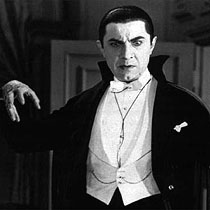
Bela Lugosi's Dracula
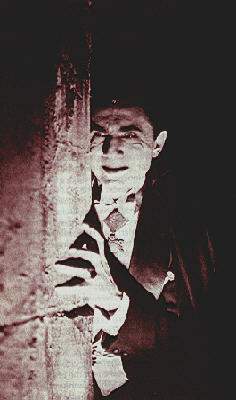
Bela Lugosi
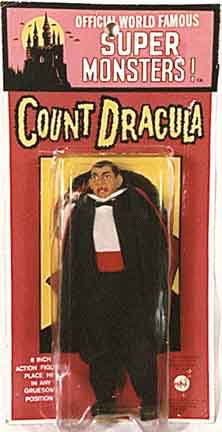
Funky Dracula Toy.
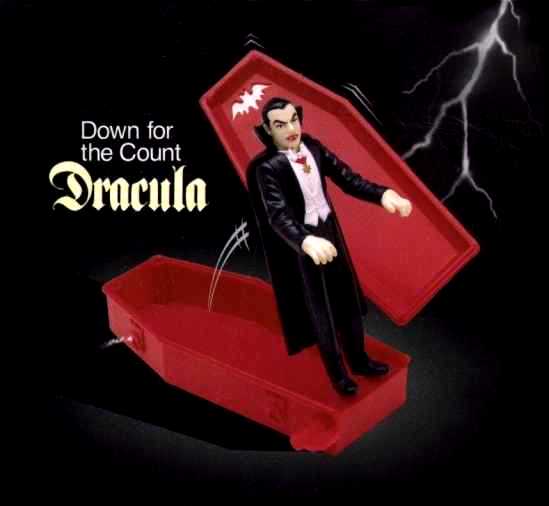
Pop-up Dracula
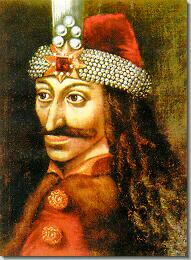
Vlad Tepes, domnitorul Tarii Romanesti 1456-1462
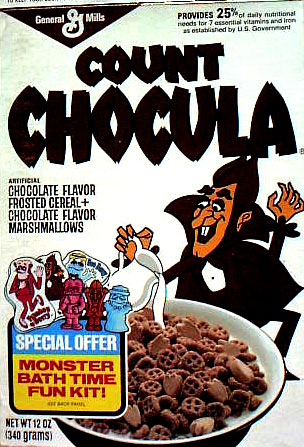
Count Chocula
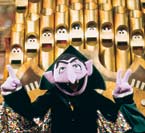
The Count